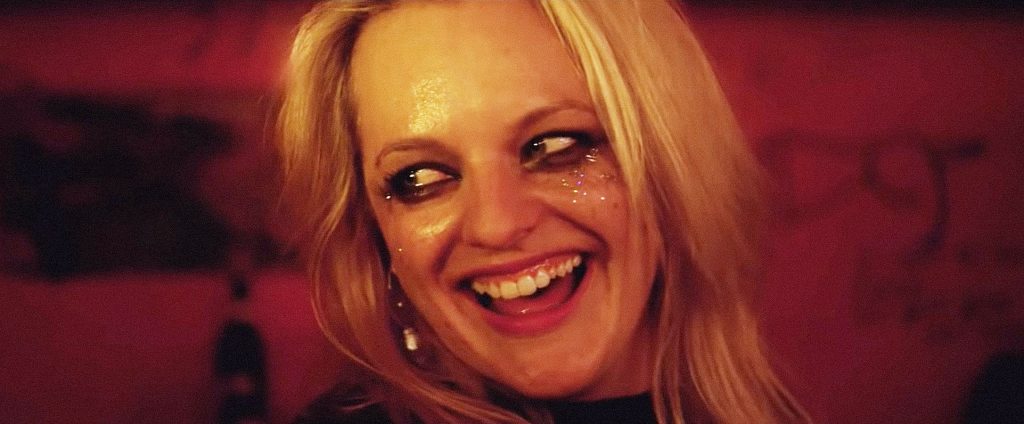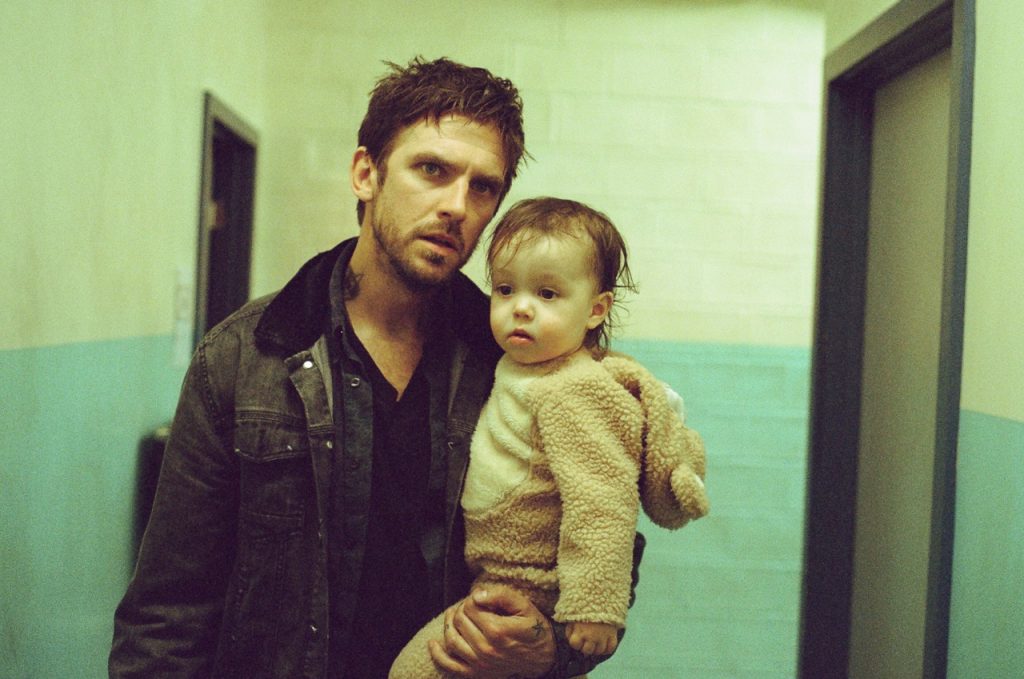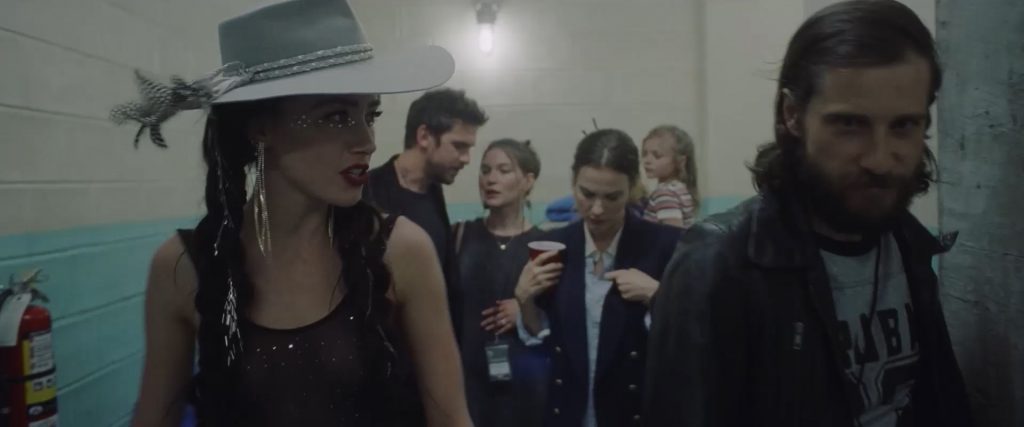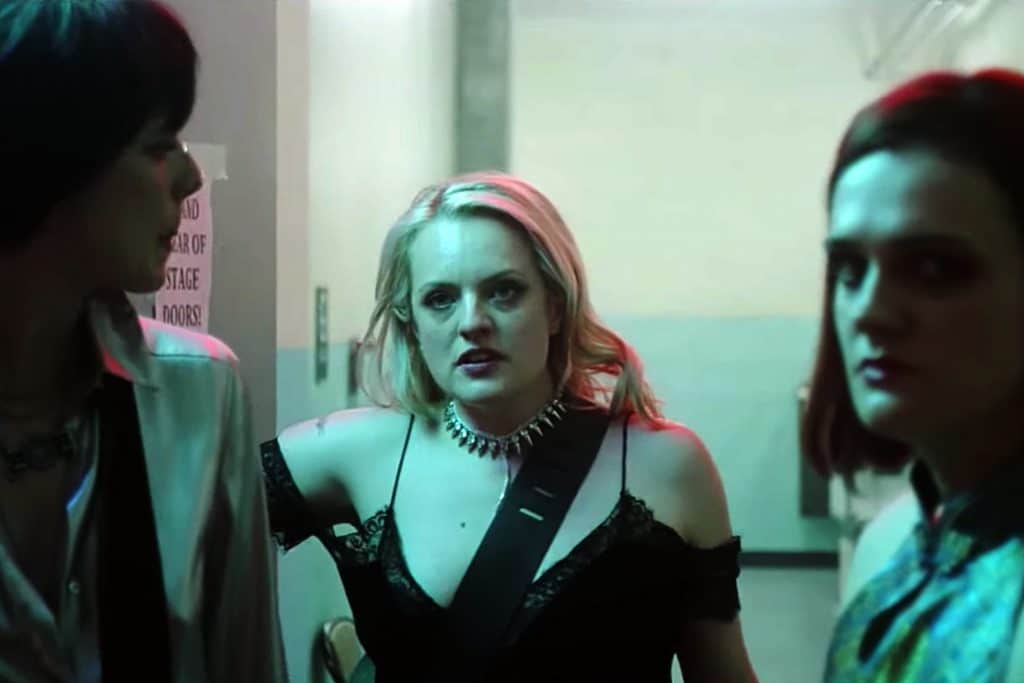Read also:
How to Watch FX Live Without CableHow To Watch AMC Without CableHow to Watch ABC Without CableHow to Watch Paramount Network Without CableEvery month, we at The Spool select a filmmaker to explore in greater depth — their themes, their deeper concerns, how their works chart the history of cinema and the filmmaker’s own biography. For Thanksgiving, we’re going off the beaten path this month and asking contributors to write about the movie they’re most thankful for experiencing. Read the rest of our coverage here.
One woman sits with her back to another in an airy room full of white light. There’s an atmosphere of anxious quietude, and all this light imbues it with vulnerability – nothing hidden from view here. She – the one with her back turned – sets a pre-recorded analog track in motion, accompanying herself with a guitar down-strum, and half-sings the refrain: “I don’t want to quit / I just want to be in control of it.”
The singer is Becky Something (Elisabeth Moss) – mercurial once-frontwoman of the fictitious rock outfit Something She – in Alex Ross Perry’s Her Smell. She’s just shy of a year sober. As it happened, so was I when I watched Her Smell, so I was particularly primed to relate: to the film and its unredeemed villain of a protagonist, to its narrative of addiction and counter-narrative of recovery, to this dumb PJ Harvey outtake of a song. Another year later and here I am, still thankful for it.
Her Smell is an exhausting, virtuoso work that tackles a lot simultaneously. But as Becky’s plaintive solo performance – offered up to a similarly sober ex-bandmate (Agyness Deyn’s Mari) a little more than halfway through – makes clear, it’s also something simple: a series of vignettes about addiction, sobriety, and both their discontents. It’s a recovery story in which no one is really saved, exactly – unless you grant salvation as being preserved another day to do the work of living with others, which you should.

“I don’t want to quit / I just want to be in control of it” isn’t just an addict’s lament: it’s also a cri de couer from the newly sober at the Injustice Of It All. I’ve said it in meetings. I’ve heard it said in meetings. In fact, there’s something a little meeting-like about this two-person congregation, in this spare, over-lit room: though Becky and Mari drink tea instead of bad coffee and there’s a bay window instead of a wall emblazoned with handwritten clichés, it’s familiar enough.
Becky’s new song is painfully earnest, if shopworn. That whispery, confessional fatigue, that already-heard exhaustion is apparent to Becky, though she wouldn’t mind being disproved (“Just a bunch of junk,” she offers, with a pregnant pause); and it’s clear to Mari, as she listens politely but with an expression hovering somewhere between empathy and consternation. She’s heard it before, too, and we almost expect her to deliver a meeting retort: “Poor me, poor me, pour me another.” We wouldn’t blame her. But she does exactly what the moment asks of her: she sits there with her friend. She listens to what she already knows.
The scene’s poignancy comes from one of Her Smell’s more general successes: its refusal to romanticize or reassure, while still finding something luminous in its portrait of care – not beauty, exactly, but something more akin to solidarity, some connective truth in these plural, offhand moments of quiet support
In her unclassifiable choral addiction memoir cum lit-crit masterpiece The Recovering, Leslie Jamison wrote:
In recovery, I found a community that resisted what I’d always been told about stories — that they had to be unique — suggesting instead that a story was most useful when it wasn’t unique at all, when it understood itself as something that had been lived before and would be lived again. Our stories were valuable because of this redundancy, not despite it. Originality wasn’t the ideal, and beauty wasn’t the point.
The strengths of this often deeply unlikeable film can be found there, precisely: in its repetitions, its unblinking unbeauty, and, finally, its vision of escape. Ironic, because escape was addiction’s logic. More ironic, because it’s an escape arrived at through engagement. No one ever said recovery didn’t have a sense of humor.
Escape wasn’t on my mind when I embarked on my own sobriety, this latest and (one hopes) final sobriety. If anything, sobriety looked to me like a dead-end. Raised on a steady diet of stories about the hard, beautiful truths of individual dysfunction and damage, I could only imagine it as lack, as deficit.

“We love our drunk heroes intoxicated,” Jamison observes. “We don’t want to watch them get sober.” Growing up reading Beat Generation howls, or Hunter Thompson desert freak-outs, or Bukowski gutter-mewls, or a thousand other marginal pronouncements of outsider revelation, I consistently imbibed the message that art – particularly rebellious, questing art, the kind that Sticks It To The Man, or at least rejects polite society’s conventions in favor of hard-won illumination – is dredged from the depths, from sleepless nights and half-broken dawns and heartache countered with manic binging and euphoric epiphany.
Truth and insight lie on the far side of some shore, on the other side of the night; over here, it’s just workaday bullshit and morning monotony. No one ever made great art about going to the gym and then putting the dishes away, in other words.
Challenging cinema doesn’t get up early to feed the dogs, and every great story starts elbows-up on a bar and ends face-down in an alley. Ipso facto, sobriety represents the end of stories, the “flatlin[ing] of the story past narrative repair.”
It’s a recovery story in which no one is really saved, exactly – unless you grant salvation as being preserved another day to do the work of living with others, which you should.
Obviously, that’s a whole heap of pseudo-intellectual, egocentric bullshit, but try telling that to me a year before I first watched Her Smell. By the time I had, I was on a different trajectory, a pivot largely attributable to Jamison’s writing, meetings, therapy, and the huge support of loved ones. We don’t really find out by what process Becky transitioned from the public humiliation of a final disastrous concert to the quiet room where we find her with Mari, but we can imagine. It’s probably not too different. Frankly, it’s never too different, which is the point.
Film history is full of alcoholics and dope fiends, too many to name. You’ve got your comical town drunks, your tragic junkies, your menacingly criminal addicts. Becky is a clear update of the “tortured genius alcoholic,” a particularly punkish rabble-rouser who can go from self-destructively stirring up shit to privately cranking out masterpieces.
She manages to keep those people whose shit she turns around, for a while, thanks to those masterpieces. This, too, is rote. In most of our stories, intoxication is social and plural, while sobriety is singular, solitary. It’s the nerve center of that unites the two narratives, transmitting their meanings: you experience these all-consuming blissful, shared highs, which come crashing down into an individual bottom, abandoned by friends and family.

The turning point is frequently a rejection of that plural which provided intoxication’s charge – a refusal of help, a headstrong decision to go it alone, a slow self-sequestering and isolation. Her Smell’s final, sober section engages with this and then upends it.
Becky’s final movements in the film constitute an attempt to refashion community in the absence of self-idolatry: to be humble, to be present. At the “séance” she initiates before the film’s closing stage reunion, she offers a different refrain (along with a self-ID we haven’t heard): “I am Rebecca Adamcyzk. I rely on the strength of others for support.”
Throughout, Becky has had a thing for magic and ritual, even getting bilked by a charlatan presenting himself as a shaman. But while those fake, meth-addled vision-quests were all about turning inward, we end up here with a ritual explicitly rooting its power in engagement and presence, a rejection of solipsism and a prayer to collectivity. It’s almost too neat a shorthand – addict ritual and recovery magic – but I think it’s unusually moving.

It’s also an entirely different conception of the self and its story, and it sounds like something clicking for Becky. I can locate a similar moment for myself, and it arrived (surprise!) via a passage of Jamison’s: the exact moment when white-knuckled not-drinking shifted into something I’d call my sobriety, something owned rather than borrowed out of obligation, and therefore temporary.
After waxing nostalgic about “drinking in smoky bars with other 22-year-olds who dreamed of becoming writers; running drunk through the peeling paint of the French Quarter, riding piggyback on my boyfriend, both of us fueled by shots of well bourbon; drinking lukewarm rum by candlelight during power outages in Nicaragua,” Jamison pivots:
But the truer story of my drinking is really a story about tedium, about claustrophobia and repetition. At a certain point, it started to expose itself as something that wasn’t revelry, that wasn’t about connection but isolation, that wasn’t about dark wisdom or metaphysical angst — that wasn’t about anything, really, besides the urge to get drunk, by myself, with no one watching.
This is the pinprick to the inflated narrative of glorious, revelatory inebriation, and it’s also a maneuver Her Smell deftly pulls off. Jamison’s initial nostalgia is there in VHS flashbacks to the band’s early success, and implicit in all of Becky’s self-mythologizing: in her rambling, pseudo-Shakespearean lyricism, a state of grandiose performance so insistent it eventually, inevitably, conjures up its own meta-filmic documentary camera.

But, instead of magnetic spectacle, the film’s structure emphasizes repetition, exhaustion, tedium. It elicits these from every non-Becky character, and eventually from the viewer. It’s tough to watch simply because the same flashy, boring, stupid things keep happening, and the figure at their center considers them monumental events in the grand story the world is telling about her.
The entirety of Her Smell’s construction feeds this sense: Sean Price Williams’ restless camera roaming the backstage labyrinths; Robert Greene’s fluid editing, which generates a tension between the maelstrom of self-involvement and the tedium of waiting for it to crash back down; Keegan DeWitt’s thrumming, dread-conjuring score.
Her Smell engages in all the conventional crash-bang hoopla of the manic stoned narrative while standing apart from it, empathetically registering its bankruptcy. By the time the film’s final, sober act arrives, in the silence of the morning light, with a mediocre song and some tea, it comes as a profound relief.
But – as several closing conversations and a bit of on-stage banter demonstrate – Becky’s still kind of an asshole. Thank god. She might have a year under her belt now, and we hope she has many more. But she’s not “cured”, and the world’s not repaired: too many lawsuits, a child who doesn’t know her, a lifetime of slights to make right.
Her new song is self-indulgent and not very good. Who knows what the next one will be, or what form it will take. She’s positioned to avoid dying; now she has to learn to live. We wish her the best as the credits roll, and move back into our own worlds galvanized by the same hope.
At least I do, which is why I’m so thankful Her Smell exists. It’s not merely a rejection of “in vino veritas,” the idea that (per Jamison) intoxication “wasn’t obscuring truth but unveiling it” (or, more grandly, Jack London’s championing of the “pitiless spectral syllogisms of the white logic,” alcohol’s “access to bleak truths”). A film like Her Smell strives for a counter-narrative, an affirmation of the kinds of truth we find, and make, together.
In The New York Times earlier this month, Jamison wrote:
My time in 12-step recovery was offering the radical (to me) idea that profundity wasn’t predicated solely on dysfunction — that there could be just as much meaning, just as much truth, in the simple act of getting through each day, summoning yourself to show up for other people and their problems, recognizing that their spirits were also fettered by weights you couldn’t fathom.
If Her Smell functions as a feature-length “drunk-a-log,” then this is Becky’s contribution to the meeting, too. We won’t necessarily be fine, but we’ll be here, together, and that beats the alternative. Nothing’s promised, but nothing’s fated, either, and there are more stories left to tell.